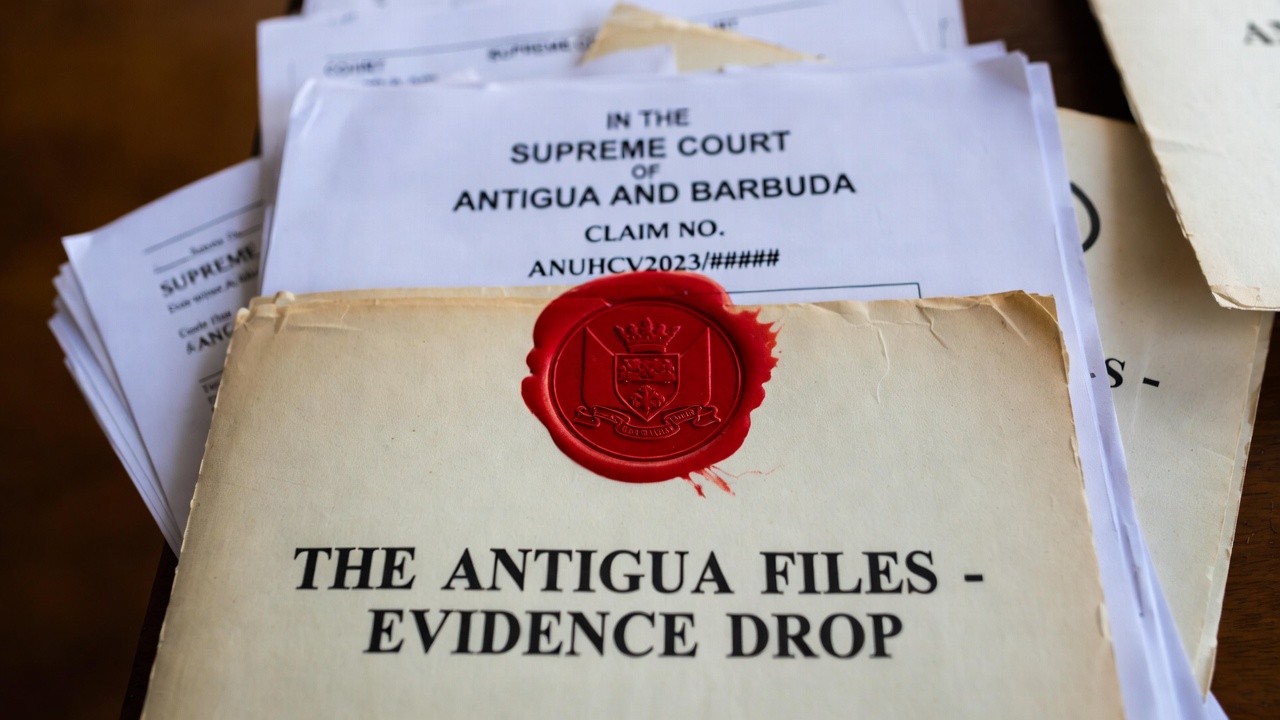In a courtroom at Guantanamo Bay, Khalid Sheikh Mohammed, the accused planner of the 9/11 terrorist attacks, recently sat silently as a judge halted proceedings that could have marked a significant turning point in a case that has spanned over two decades. Dressed in a bright orange jumpsuit and sporting a distinctive orange-dyed beard, the 59-year-old listened as his lawyer confirmed that he intended to plead guilty to all charges. The judge's inquiry into the status of his plea was met with an unexpected pause due to a federal appeals court's intervention.
This development comes after more than 23 years since the tragic events of September 11, 2001, which resulted in nearly 3,000 deaths and was labeled by the US government as one of the gravest acts of terrorism on its soil. Mohammed has publicly acknowledged his role in orchestrating the attacks, describing how he planned the operation and presented the concept to Osama bin Laden. However, his formal admission of guilt has yet to be recorded in court.
A central aspect of this week's proceedings was a controversial agreement struck last year, which would allow Mohammed to plead guilty without facing the death penalty. The US government recently moved to rescind this deal, asserting that proceeding with it would inflict "irreparable" damage to the nation. This pushback has left the case in legal limbo, with the three-judge panel's decision pending on whether to uphold or reject the agreement.
Family members of 9/11 victims had made arrangements to attend the proceedings, only to find themselves facing disappointment as the hearings were unexpectedly stalled. Elizabeth Miller, one relative of a deceased firefighter, expressed her desire for resolution, indicating that many families held differing views on the nature of Mohammed's potential plea, reflecting a deep divide on issues of justice, closure, and leniency.
This delay is further indicative of a pattern of halted proceedings surrounding a military court system that has grappled with its legitimacy and the treatment of detainees. The prison at Guantanamo Bay was established in response to the attacks, with detainees often subjected to controversial interrogation techniques that have raised human rights concerns.
Once housing nearly 800 detainees, Guantanamo now holds only 15, as the Biden administration continues to seek closure of the facility amidst calls for reform and further action. Lawyers, journalists, and family members remain engaged as the high-security court at Guantanamo continues to sort through complex legal battles while maintaining a significant historical and geopolitical profile. As the court adjourned, the uncertainty shrouding Khalid Sheikh Mohammed's plea indicates that this chapter of the 9/11 saga remains far from closed.
This development comes after more than 23 years since the tragic events of September 11, 2001, which resulted in nearly 3,000 deaths and was labeled by the US government as one of the gravest acts of terrorism on its soil. Mohammed has publicly acknowledged his role in orchestrating the attacks, describing how he planned the operation and presented the concept to Osama bin Laden. However, his formal admission of guilt has yet to be recorded in court.
A central aspect of this week's proceedings was a controversial agreement struck last year, which would allow Mohammed to plead guilty without facing the death penalty. The US government recently moved to rescind this deal, asserting that proceeding with it would inflict "irreparable" damage to the nation. This pushback has left the case in legal limbo, with the three-judge panel's decision pending on whether to uphold or reject the agreement.
Family members of 9/11 victims had made arrangements to attend the proceedings, only to find themselves facing disappointment as the hearings were unexpectedly stalled. Elizabeth Miller, one relative of a deceased firefighter, expressed her desire for resolution, indicating that many families held differing views on the nature of Mohammed's potential plea, reflecting a deep divide on issues of justice, closure, and leniency.
This delay is further indicative of a pattern of halted proceedings surrounding a military court system that has grappled with its legitimacy and the treatment of detainees. The prison at Guantanamo Bay was established in response to the attacks, with detainees often subjected to controversial interrogation techniques that have raised human rights concerns.
Once housing nearly 800 detainees, Guantanamo now holds only 15, as the Biden administration continues to seek closure of the facility amidst calls for reform and further action. Lawyers, journalists, and family members remain engaged as the high-security court at Guantanamo continues to sort through complex legal battles while maintaining a significant historical and geopolitical profile. As the court adjourned, the uncertainty shrouding Khalid Sheikh Mohammed's plea indicates that this chapter of the 9/11 saga remains far from closed.





















